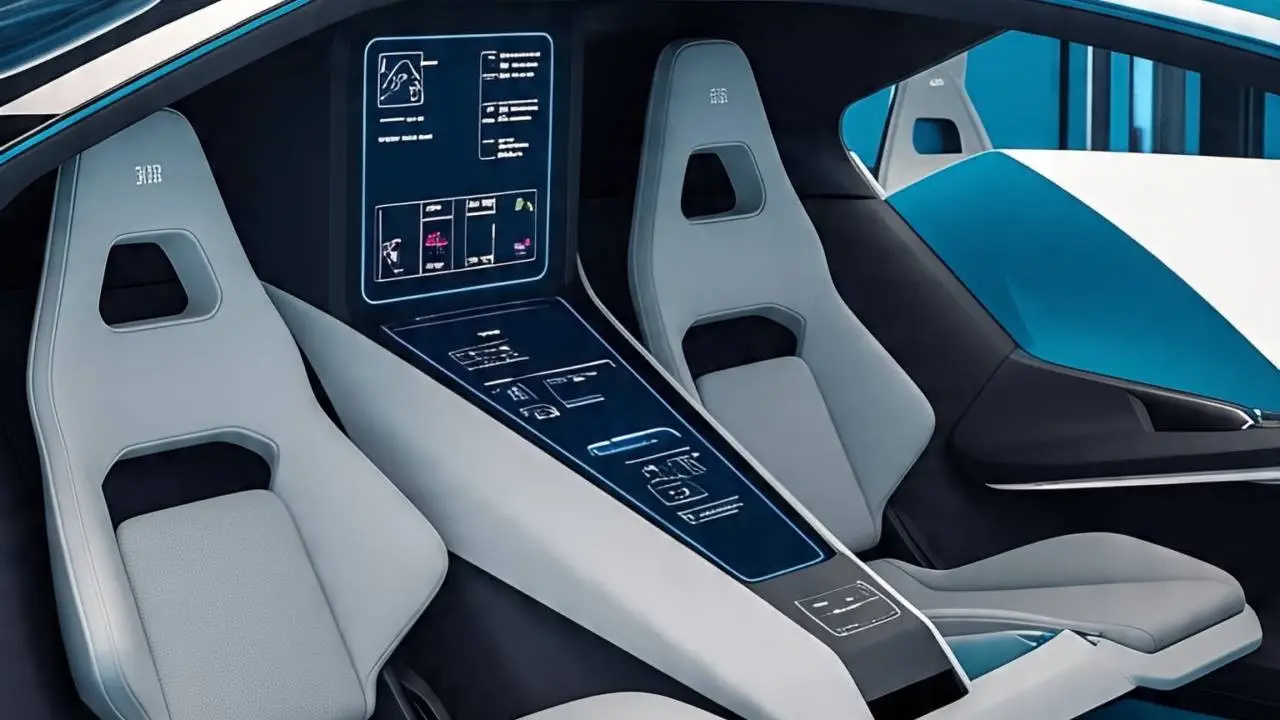
AI Electric Vehicles (Credit ai)
Auto News: The car of the future won’t just take you to your destination—it will understand your exhaustion too. Equipped with AI-powered steering wheels and neural sensors, next-gen vehicles are now capable of scanning facial expressions, eye movements, and body language in real time. The moment signs of fatigue, irritation, or drowsiness are detected, the system issues alerts and automatically adjusts in-car settings.
Music may lower, air conditioning might pause, and in some cases, the vehicle could even recommend a complete stop. In this paradigm shift, it’s no longer the dashboard—but your state of mind—that truly controls the drive.
Electric vehicles are evolving into emotion-sensing machines. Equipped with neural sensors and advanced AI systems, these cars are beginning to understand human emotions in real-time. BMW’s iX and Tata.ev’s latest concept models feature driver mood detection, adjusting lighting, temperature, and even speed sensitivity. These AI systems analyze facial expressions, voice tone, and heart rate through in-built sensors. The goal is to keep the driver calm, alert, and safe. This isn’t just smart mobility—it’s emotional intelligence on wheels.
Seat sensors are now smarter than ever. Modern EVs are embedding pressure and posture sensors to detect fatigue or restlessness. When a driver shows signs of drowsiness, the system alerts or switches to auto-drive mode if available. AI-driven seat tech can subtly vibrate or adjust positioning to correct posture or re-energize the driver. Some concept cars even offer heartbeat sensing through the seatbelt. These upgrades transform passive seating into active safety solutions. Your seat becomes your co-pilot.
AI dashboards now offer real-time emotional analysis. These interfaces adapt visually and functionally depending on the driver’s mood. If stress is detected, displays simplify, lights soften, and relaxing music cues in. Voice assistants like those in Tata.ev and BMW iX respond to emotional tone, not just commands. These dashboards essentially act like in-car therapists. It’s an evolution from user interface to human-interface, where comfort isn't just physical, but psychological too.
Emotion detection is no longer science fiction. With infrared eye-tracking, voice pitch analysis, and facial recognition, cars can gauge whether you’re angry, anxious, or excited. Tata.ev’s concept even integrates mood-mapping to suggest routes or music based on how you feel. For example, if you're anxious, the car may avoid traffic or suggest a scenic route. AI doesn’t just follow your commands—it now anticipates your emotional needs and adjusts the ride accordingly.
BMW’s iX showcases next-gen emotion-aware driving. Its AI system links cabin ambiance with driver status. Mood sensors adjust climate control, seat comfort, and noise cancellation dynamically. BMW claims these updates reduce road rage and fatigue over long drives. The car even suggests coffee stops if your attention span dips. It’s not just luxury—it’s intelligence fused with empathy. BMW’s approach signals where future EV standards are headed.
Tata.ev is bringing emotional AI to Indian roads. Their concept models aim to localize emotion recognition by training AI on Indian expressions, languages, and moods. This includes integrating with regional voice assistants and developing India-specific emotion maps. Tata’s approach is not just about high-tech, but high-connect. They aim to make Indian EVs emotionally responsive, not just environmentally responsible. The goal is an electric car that understands its driver, culturally and emotionally.
In coming years, emotional AI will be standard, not luxury. Cars will know when to slow down, light up, or speak less—based on how you feel. Emotion-sensing EVs will redefine road safety, reduce accidents, and build a deeper human-machine connection. From mood-based playlists to mental health support systems, the emotional car is becoming real. Your next EV won’t just go places—it’ll go with your mood.





Copyright © 2026 Top Indian News
